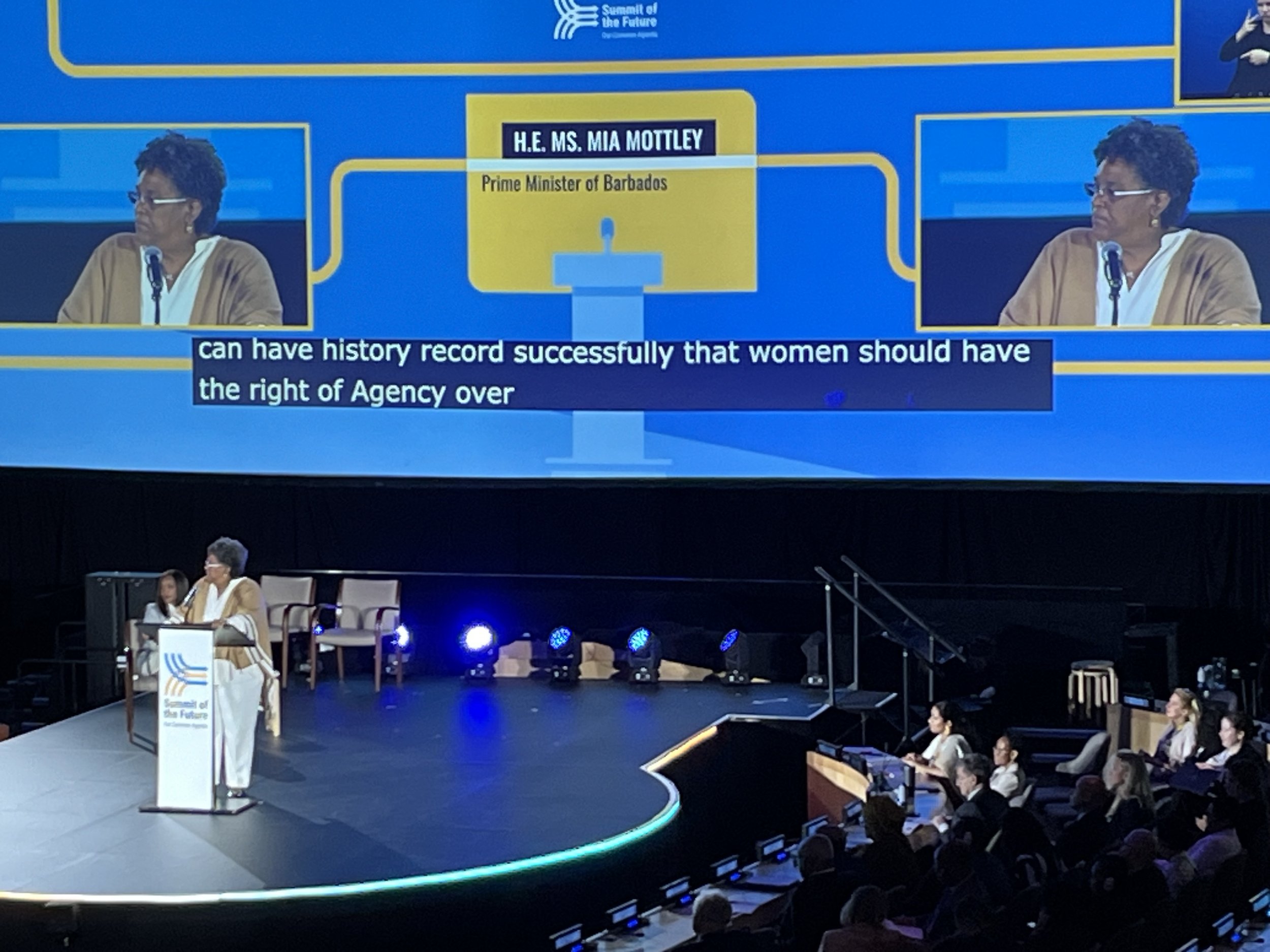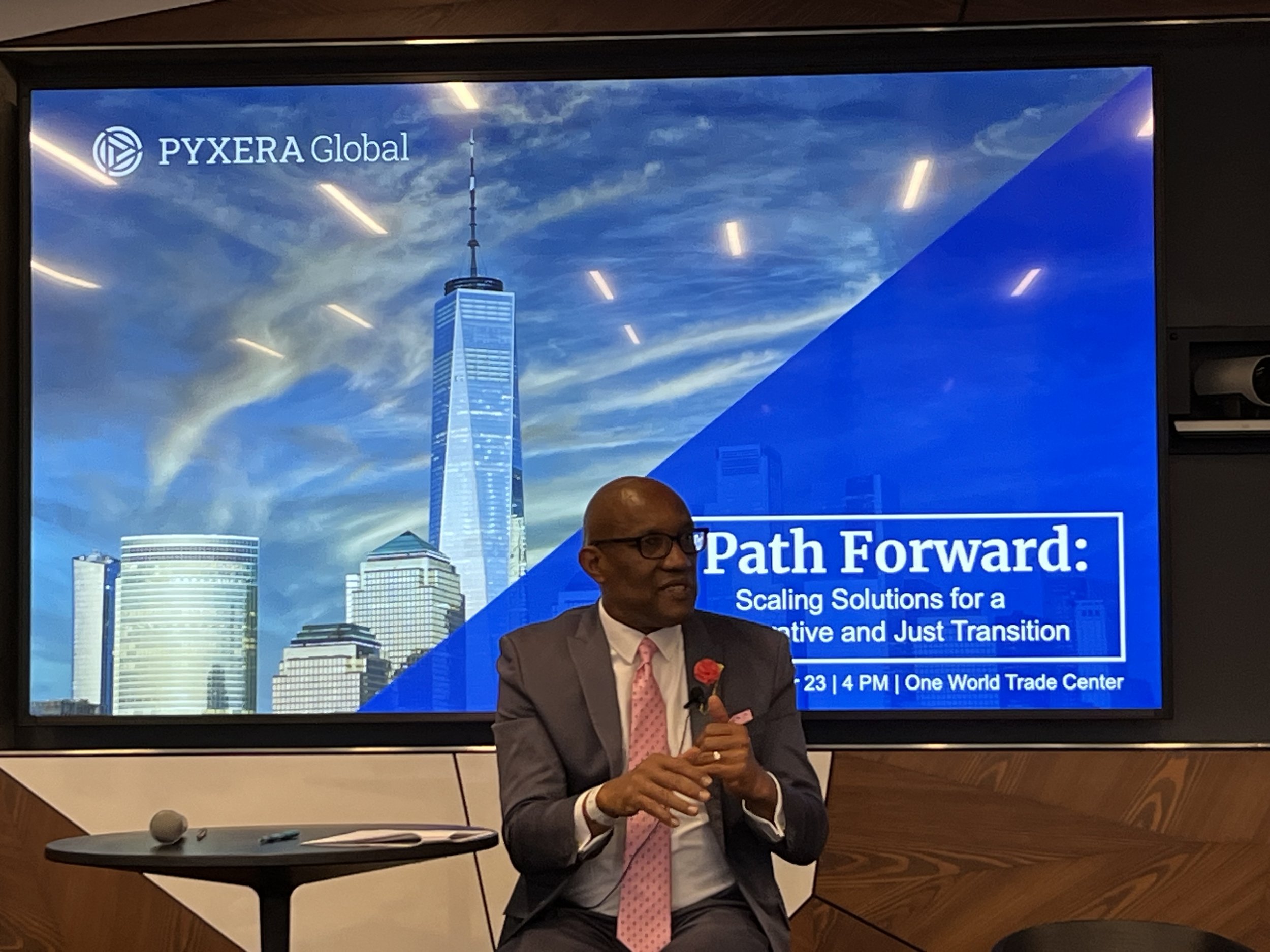Before (and After) the Storm
No one can say that the devastation wrought by hurricanes Helene and Milton was unexpected. Those of us who’ve been waving red flags for decades about the potentially negative consequences of climate change have warned exactly that, and those negative consequences are heading to a tipping point where they will be irreversible.
That it came during Climate Week NYC is not really ironic — rather it’s a sign that extreme weather no longer recognizes calendars or safe havens. This spring, Hurricane Beryl tore through the Caribbean, destroying 95% of the island of Carriacou, and it was the first-ever Category 4 storm formed in the Atlantic as early as June. And when Hurricane Helene pummeled western North Carolina, it demonstrated that there really are no places to escape from the dangers of unleashed and unhinged superstorms.
It is for those reasons that Climate Week is more important than ever, a chance for those concerned about climate to continue to give visibility to these issues, particularly as it dovetails with the UN General Assembly (UNGA), the annual policy-making session of all 193 UN Member States that launches every September. As Heads of State use UNGA as an opportunity to address a global stage, Climate Week NYC likewise uses UNGA as a forum to capture their attention — and the international press corps that follows them.
(Let it be noted that Climate Week NYC is also an opportunity to keep pressure on the 123 members of the U.S. Congress who are active climate change deniers, and who collectively pocket $52 million from the fossil fuel industry. Source: Environment+Energy Leader)
Brooklyn Story Lab partners played very active roles during Climate Week NYC 2024, including Blue Planet Alliance (BPA), Pyxera Global, Global Warming Mitigation Project, Tropix Media, Mobile Film Festival, the Peace Department, The B Team, UNLEASH, Akashinga, Green Amendments for the Generations, and Kinetik.
Barbados Prime Minister Mia Mottley closes Day 2 of the UN's Summit of the Future.
The week kicked off on Friday, September 20th, with a climate strike, led by Fridays for Future, as hundreds of strikers (with financial support from many organizations, including BPA) marched across the Brooklyn Bridge. At UN Headquarters, Secretary-General Antonio Guterres convened a four-day Summit of the Future, punctuated (among many stirring moments) by a Day 2 closing speech by Caribbean climate hero (and possible next Secretary-General) Mia Mottley, Prime Minister of Barbados. In the speech, she emphasized the African philosophy of Ubuntu, "I am because you are." The idea embodies the sense that we are only human through the humanity of others — a perfect message for the Summit of Future, convened to further collaboration in times of great conflict.
Dr. Philbert Aaron, Dominica's UN Ambassador, delivers keynote speech at Pyxera Global's "A Path Forward."
Pyxera Global produced a wide-ranging event on Monday the 23rd, “A Path Forward: Scaling Solutions for a Just and Regenerative Transition,” with a global lineup of equitable all stars from the Caribbean, the Amazon, East and Southern Africa, South Asia, Alaska, Southeast Asia, and Indigenous land on the American Plains. Brooklyn Story Lab introduced keynote speaker Dr. Philbert Aaron, Permanent Representative of Dominica to the UN, who recalled the trauma of surviving Hurricane Maria on his island, with his seven-week-old son. Their home was constructed in a model devised by Indigenous people, and looked like it would be no match for the Category 5 storm. But his home survived, while most of the modern buildings on Dominica were flattened.
Atossa Soltani, left, of Amazon Sacred Headwaters, and Mario Baeza, right, of Tropix Media, at Pyxera Global's "Decolonizing Digital Information."
Later in the week, Pyxera hosted another event, “Decolonizing Digital Information,” which celebrated the Partnership for Digital Justice and emphasized the importance of making AI more inclusive and digitizing Indigenous wisdom, before it is lost. Wisdom like the construction techniques of Dr. Aaron’s home that survived Hurricane Maria. Tropix Media founder Mario Baeza discussed a project he launched with the Cuban government to digitize 300,000 audio and videotapes that he literally saved from the dustbin of history — the government had no idea (and little patience) to preserve these tapes that were disintegrating in the island’s humid conditions. Baeza’s team designed mobile digitization units to rescue and preserve the tapes. (Most enlightening discovery: rare footage of Teddy Roosevelt and the Rough Riders.)
Global Warming Mitigation Project Executive Director Jacquelyn Francis, left, with Keeling Curve Prize laureate Amazon Sacred Headwaters, represented by President of the Governing Board Uyunkar Domingo, left, and Director of Global Strategy Atossa Soltani, right.
The Global Warming Mitigation Project honored the laureates of its Keeling Curve Prize, including Amazon Sacred Headwaters, a collective of 30 Indigenous tribes in Ecuador and Peru intent on protecting the Amazon from further industrial-scale resource extraction (Amazon Sacred Headwaters was also nominated for an Earthshot Prize, the award launched by the UK’s Prince William and renowned natural historian David Attenborough), and Seabound, which captures carbon emissions from ocean-going ships and turns that into limestone.
Brooklyn Story Lab CEO Lance Gould leads fireside chat with Tonga's Speaker of the Legislative Assembly Lord Fatafehi Fakafanua.
Blue Planet Alliance took part in nearly a dozen events during the week, including hosting its annual Friday-night closer, “Climate Impact Talks and Celebration,” ane evening of thought leadership and musical performances. Brooklyn Story Lab led a panel of BPA’s purpose-driven partners, and hosted a fireside chat with Lord Fatafehi Fakafanua, Tonga’s Speaker of the Legislative Assembly. Fakafanua waxed wistful about the building over which he once presided, Tonga’s 100-year-old Legislative Assembly, which was demolished by Cyclone Gita in 2018.
A common theme: islands and mainland nations all being leveled by extreme weather. The more countries that recognize what lies ahead, the more that will band together to try and stop climate change.
Read more about BPA’s CWNYC appearances here, and stay tuned for more about all our partners on BSL’s blog and social media channels.






